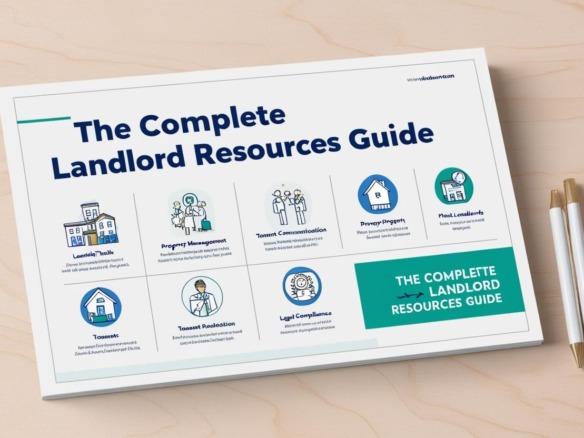Introduction
The UK property market has always been a dynamic landscape, and 2025 is proving to be no exception. Following the economic shifts we’ve witnessed over the past few years, including interest rate fluctuations, changing work patterns, and evolving buyer preferences, the property market is now presenting both challenges and opportunities for prospective buyers.
Whether you’re a first-time buyer trying to get onto the property ladder, a homeowner looking to upsize, or an investor seeking profitable opportunities, understanding the current UK property market trends is essential for making informed decisions. In this comprehensive guide, we’ll explore the key trends shaping the UK property market in 2025 and what they mean for buyers.
The Post-Pandemic Property Market Landscape
The COVID-19 pandemic triggered significant changes in the UK property market, many of which continue to influence trends today. The “race for space” that characterised the pandemic years has evolved rather than disappeared entirely, with many buyers still prioritising homes with outdoor areas and dedicated workspaces.
However, the complete exodus from cities that some predicted hasn’t materialised. Instead, we’re seeing a balanced approach where proximity to urban centres remains desirable, but with greater emphasis on neighbourhood quality and access to green spaces.
The latest market data shows that regional property markets are growing at different rates, with some areas experiencing significant appreciation while others stabilise or even cool slightly.
Key UK Housing Trends 2025
1. Regional Price Variations Continue to Widen
The north-south divide in property prices persists but has become more nuanced in 2025. While London and the South East remain the most expensive regions, the rate of price growth has slowed compared to some northern regions and the Midlands.
Areas with improved infrastructure, regeneration projects, and strong employment opportunities are seeing the strongest price growth. Cities like Manchester, Birmingham, and Leeds continue to attract both domestic and international investment.
For buyers, this means opportunities exist in emerging hotspots where prices haven’t yet peaked but show strong potential for appreciation. Check our regional property guides for detailed analysis of specific areas.
2. Interest Rate Stabilisation
After a period of volatility, interest rates have begun to stabilise in 2025, providing more certainty for mortgage borrowers. The Bank of England’s adjustment of the base rate has influenced mortgage products across the market, with more competitive fixed-rate deals becoming available compared to previous years.
This stabilisation is good news for property buyers, as it improves affordability calculations and provides more confidence when budgeting for monthly payments. First-time buyers particularly benefit from this more predictable environment.
3. Sustainability Premium Grows
Environmental considerations are increasingly influencing property values, with energy-efficient homes commanding a growing premium in the market. Properties with high EPC ratings, renewable energy installations, and sustainable features are not only more attractive to buyers but also increasingly valuable assets.
The government’s commitment to net-zero targets continues to shape building regulations and retrofit incentives, making sustainability a key factor in property investment strategies. Buyers should consider the long-term value proposition of energy-efficient properties, which offer lower running costs and potential for appreciation.
4. Technology Integration in Home Design
Smart home technology is no longer considered a luxury but increasingly an expectation, particularly in new builds and premium properties. From advanced security systems to energy management solutions, technology integration is reshaping what buyers look for in potential homes.
Developers are responding by incorporating more tech-ready features into their designs, including high-speed connectivity infrastructure, electric vehicle charging points, and adaptable spaces for home working. For buyers, considering a property’s technological capabilities has become an important aspect of the decision-making process.
Property Investment Strategies for 2025
With the current market conditions, savvy investors are adapting their property investment strategies to maximise returns:
Buy-to-Let Evolution
The rental market remains robust in 2025, but successful buy-to-let investment requires careful consideration of location, property type, and target demographic. Student accommodation near prestigious universities and professional rentals in commuter towns continue to deliver strong yields.
Regulatory changes have impacted landlords’ tax positions, making it essential to structure investments efficiently. Our landlord guide provides detailed information on navigating these regulations.
Build-to-Rent Opportunities
The build-to-rent sector continues to expand, offering investors opportunities to participate in this growing market segment. Purpose-built rental developments with community amenities and professional management are attracting both institutional and individual investors.
Renovation Projects
With sustainability premiums rising, renovation projects that improve energy efficiency can offer significant returns on investment. Older properties with good structural integrity but poor energy performance present opportunities for value enhancement through targeted improvements.
Challenges for Buyers in the Current Market
Despite some favourable conditions, buyers still face challenges in the 2025 property market:
Affordability Concerns
Despite some regional variations, affordability remains stretched in many parts of the UK. First-time buyers particularly face challenges in saving sufficient deposits while managing rising living costs.
Government schemes like Help to Buy and the Mortgage Guarantee Scheme continue to evolve, offering some support for those struggling to enter the market.
Supply Constraints
New housing supply, while improving, still lags behind demand in many areas. This supply-demand imbalance continues to put upward pressure on prices in desirable locations.
Planning reforms have made some impact on accelerating development, but construction industry challenges, including material costs and labour shortages, continue to limit the pace of new home delivery.
Market Competition
In sought-after areas, competition among buyers remains intense, often leading to bidding wars and properties selling above asking price. Working with a property agent who has local expertise and strong networks can give buyers an advantage in these competitive situations.
First-Time Buyer Outlook
For those looking to get onto the property ladder in 2025, there are both challenges and opportunities:
Deposit Requirements
While mortgage products with lower deposit requirements are available, accumulating a substantial deposit remains advantageous for securing better interest rates. Alternative paths to homeownership, such as shared ownership schemes, are worth exploring for those struggling with deposit requirements.
Location Flexibility
Being flexible about location can significantly improve affordability. Many first-time buyers are looking beyond traditional hotspots to up-and-coming areas with good transport links and regeneration potential.
Government Support
Various government initiatives continue to support first-time buyers, though eligibility criteria and benefits vary. Staying informed about available schemes and their application to your personal circumstances is essential.
Check our first-time buyer guide for detailed information on navigating the current market.
The Impact of Remote Working on Property Preferences
The normalisation of hybrid and remote working arrangements continues to influence property preferences in 2025:
Home Office Space
Dedicated work spaces remain a priority for many buyers, with homes offering flexible areas that can serve as offices commanding premium prices.
Connectivity Importance
High-speed internet connectivity has become a non-negotiable factor for many buyers, with poor digital infrastructure potentially devaluing otherwise attractive properties.
Community Focus
With more time spent at home and in local areas, buyers are increasingly prioritising neighbourhood amenities, community atmosphere, and local services when selecting properties.
New Build vs. Existing Properties
The choice between new build and existing properties presents different considerations for buyers in 2025:
New Build Benefits
New homes offer energy efficiency, lower maintenance requirements, and often come with warranties. They’re typically built to higher environmental standards and include modern features that many buyers value.
However, the “new build premium” means buyers generally pay more per square foot compared to existing properties in the same area.
Existing Property Advantages
Established homes often offer more space for the money, character features, and locations in mature neighbourhoods with established amenities. They also provide opportunities for adding value through renovations and improvements.
The decision ultimately depends on individual priorities, budget constraints, and long-term plans for the property.
Conclusion
The UK property market in 2025 presents a complex but navigable landscape for buyers. While challenges persist, particularly around affordability in high-demand areas, opportunities exist for those who understand regional variations, sustainability trends, and evolving buyer preferences.
Successful property purchases in the current market require thorough research, realistic expectations, and often flexibility regarding location or property features. Working with knowledgeable professionals who understand both national trends and local market nuances can help buyers make informed decisions.
At yourpropertyfinder.uk, we specialise in helping clients navigate the complexities of the property market. Our team of experts provides personalised guidance based on your specific requirements and circumstances, ensuring you find the right property at the right price.
Whether you’re a first-time buyer, homeowner looking to move, or investor seeking opportunities, understanding these UK property market trends will help you make confident, informed decisions in 2025 and beyond.
Looking for specific property advice? Contact our team for personalised guidance tailored to your circumstances.
Explore our property listings to see what’s currently available in your target areas.




